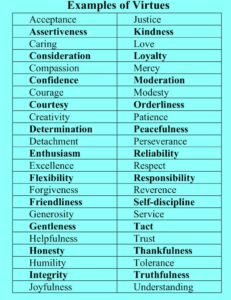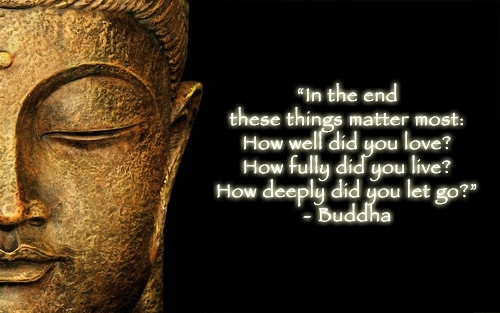Conscious and Respectful Communications with Others
Ideally, we aim to have a respectful and conscious conversations with others, although sometimes it may not turn out that way! If someone projects their negativity towards you, i.e., their ‘bad wolf’, (see My Favourite Short Story below), often they would like nothing more than for you to give them some of your ‘bad wolf’, which in reality feeds theirs and they may even justify their behaviour because of yours!  Often you just end up with 2 bad wolves fighting each other! Practice not taking the ‘bait’!
Often you just end up with 2 bad wolves fighting each other! Practice not taking the ‘bait’!
They may not be doing this consciously; it may just be the way they habitually communicate. Many people may have convinced themselves that this is the only way they get heard or get their needs met. They tend to speak with anger or by being condescending, blaming, ridiculing, demeaning, teasing, or bullying. These people may unconsciously or consciously want to cause conflict and drama in your life, when in reality, the conflicts and dramas are in theirs!
Establishing clear boundaries around another person’s behavior can proactively bring peace to the situation, reduce the likelihood of accumulating stress and tension in your mind and body, and prevent feelings of victimization.
Setting Boundaries with Virtues for better Conversations
When setting boundaries with others (or yourself), during conversations, it is wise to ask for what you do want instead of saying what you don’t want; i.e., you will be asking them (or yourself), to display a virtue – examples below.
 Often when people feel that someone is behaving in a manner that is not acceptable to them, they express to that person what they did wrong, what they do not want, why they should not have done it, or how they always do it etc etc. Ideally, get clear on what you do want before you speak! Ask yourself, “What behaviour (or virtue) would I like them to exhibit”, and then ask for that, e.g. “I would appreciate you having more consideration for my feelings at the moment.”
Often when people feel that someone is behaving in a manner that is not acceptable to them, they express to that person what they did wrong, what they do not want, why they should not have done it, or how they always do it etc etc. Ideally, get clear on what you do want before you speak! Ask yourself, “What behaviour (or virtue) would I like them to exhibit”, and then ask for that, e.g. “I would appreciate you having more consideration for my feelings at the moment.”
When you interact with another person and you feel that their behaviour or speech is not acceptable, it is wise to respond by speaking up and asking for what you want. It is better to ask for what you want, rather than going on about what you do not want. To do this it is important to first get clear by asking yourself, “What behaviour would I like them to display right now?” or “What virtue would I appreciate them displaying right now?”
If you do not know what you want, you are more likely to react rather than respond. In reacting, it is easy to express yourself in a negative way by going on and on about what they said or did, what they should not have said or done or that they always or never do this or that, etc.
This is all to do with setting boundaries. For example, if someone spoke to you in a rude, disrespectful, or angry way, you could ask for what you want (and deserve) and say to them, “When you speak to me, I would appreciate you speaking to me with more respect”, and then consciously be detached from any further challenges in their response.
You are not asking for anything unusual! We teach others how to love and respect us by how we love and respect ourselves. When asking them for what you want, you will be asking them to display a virtue; for example, respect, tolerance, patience, love, cleanliness, friendliness, kindness, or loyalty.
In all our interactions we want to treat others as we would want to be treated. Aim to be a mentor to others with your behaviour, speech, and attitude to life.
Sometimes, it’s necessary to take a step back from a situation to gain clarity and respond thoughtfully. This could involve taking a break to clear your mind or remove yourself from the situation entirely.
Practicing detachment is also crucial. By not allowing yourself to be affected by another person’s negativity, you can prevent it from impacting you and instead have it bounce back to them. This is particularly noticeable in children, who may have a tantrum but resolve the issue within themselves shortly after. By practicing detachment and not reacting negatively, you can turn this into a teachable moment for them. It’s important to remember that often times, “It’s not my circus and it’s not my monkeys,” and we do our best to avoid getting sucked into someone else’s drama. When only one person is arguing, they eventually run out of energy. Also see: Unleashing Your Full Potential – Listen to Your Body
If you are struggling with your thoughts, personal interactions, communication with others, experiencing a personal crisis or have anxiety or depression, please seek help from a doctor, health professional, counsellor, or therapist.
‘We can only find peace with the physical world when we are at peace with
ourselves.’ – Maharaj Charan Singh
More information can be found in my book available on Amazon: https://www.amazon.com/dp/B0BW2QM5G7

Chakra Wisdom Workbook – available in the store


